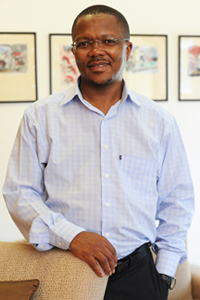A Word From The Dean
17 June 2014
It gives me great pleasure to introduce you to the Faculty of Humanities at UCT. Ours is the largest of the six faculties, with approximately 6 000 students, 25% of whom are postgraduates. The demographic profile of the students has been changing rapidly in recent years, such that in 2014, the majority of our undergraduate students are black, coloured and Indian (53%), while the remainder are white (32%) and other groups (15%, made up of international, 'race undeclared' and Chinese students). Our faculty is also the most complex; not only because of the large number of disciplines that constitute it, but also because of the variety of study programmes and research activities.
The disciplines and study areas fall into five broad clusters – education, languages, the performing and creative arts, the social sciences, and professionally oriented programmes. The one thing they have in common is a focus on the human condition in all its dimensions. Our scholars engage with the meanings of being human and how those meanings change over time because of material and non-material circumstances. Some scholars within the humanities approach these questions from an applied perspective by seeking to help improve the conditions of human beings, while others engage in more philosophical explorations of these issues. But all of them contribute to extending the frontiers and horizons of what we know about the human condition.
Our academics equip students with skills that are crucial for engaging with the material and non-material aspects of being human. I am proud to say that we produce graduates equipped with fundamentally important skills – analytical and communication skills, research and writing skills, argumentation and decision-making. UCT humanities graduates are highly sought after in the labour market, locally and globally. Although our graduates are able to secure jobs on the strength of their first humanities degrees, we have also noted a trend by many students to advance to postgraduate study, which further enhances their skills and employment prospects in high-level positions.
A humanities qualification prepares students for a multitude of career paths in the public sector, the private sector, the media, the NGO sector, consultancy services, and careers in research and academia. Analytical and problem-solving skills as well as the ability to think laterally are valued and developed across all fields in the modern world. These abilities provide an essential foundation for engaged citizenship and for entry into the world of work for graduates. The growing awareness of the value of skills gained in humanities courses has seen an increasing number of students from other faculties registering for our courses.
In 2011 the Academy of Science of South Africa produced a research report titled Consensus Study on the State of the Humanities in South Africa: Status, prospects and strategies. One of the findings of the study was that “the evidence on humanities graduates shows clearly that virtually all humanities graduates are employed, that the vast majority (more than 80%) work for an employer while the rest are self-employed, and that there is a fair spread of graduate employment across the public and private sectors†(ASSAf, 2011, p127).
Space does not allow me to take you through the vast array of exciting courses, degrees, diplomas and certificate programmes on offer in our faculty. Suffice it to say that students who love exploring ideas about how to make the world a better, more humane and just place will find our faculty extremely exciting and attractive. After all, the study of the humanities has been at the centre of the evolution of the university and the pursuit of scholarship, from the time of the great philosophers in Athens and other parts of the world, all the way to the present.
It is my hope that this Monday Monthly supplement will give you a taste of what we are about.
Further information about the faculty, its departments, research units and centres can be obtained from the website.
 This work is licensed under a Creative Commons Attribution-NoDerivatives 4.0 International License.
This work is licensed under a Creative Commons Attribution-NoDerivatives 4.0 International License.
Please view the republishing articles page for more information.









